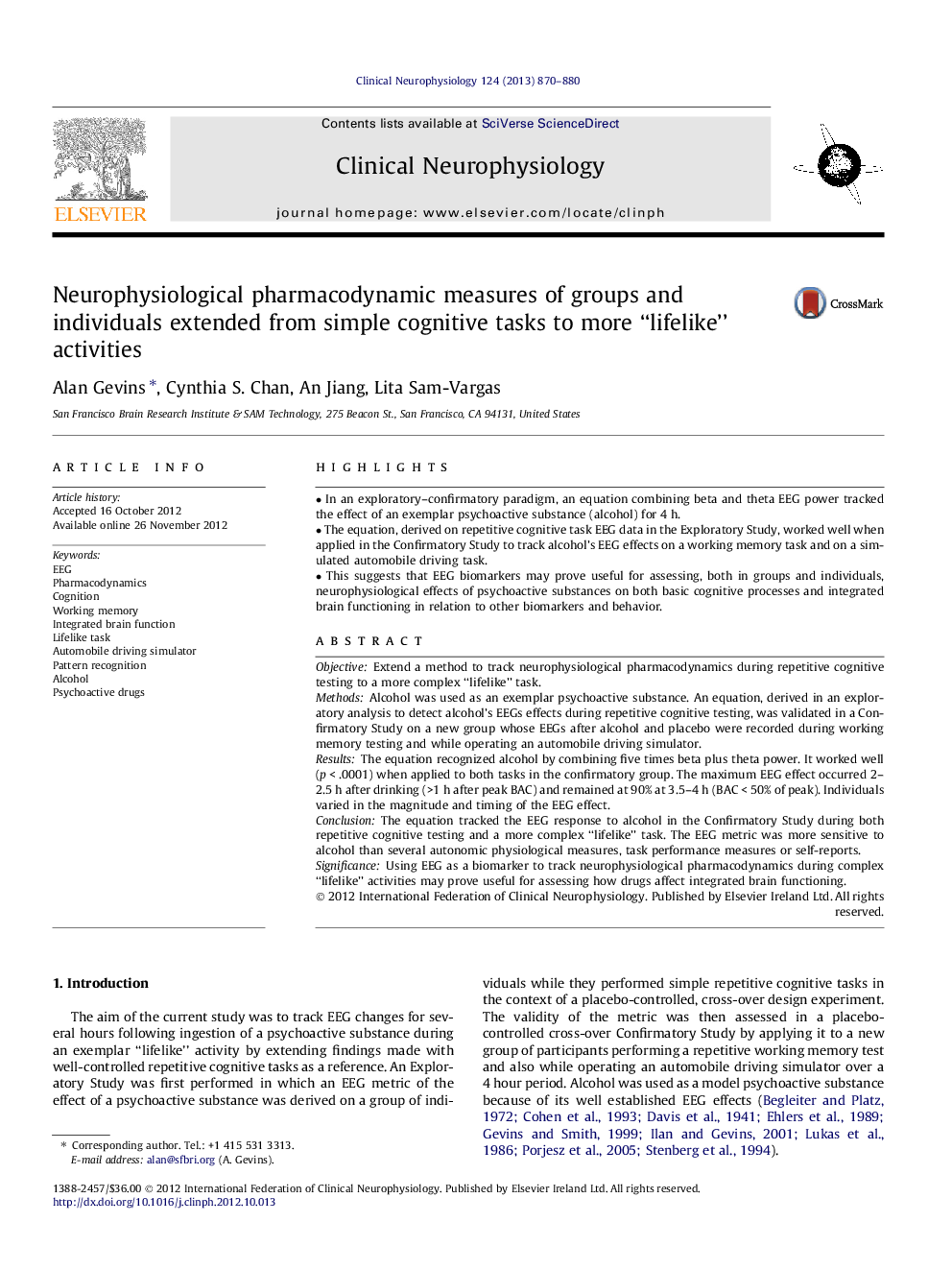| Article ID | Journal | Published Year | Pages | File Type |
|---|---|---|---|---|
| 3044326 | Clinical Neurophysiology | 2013 | 11 Pages |
ObjectiveExtend a method to track neurophysiological pharmacodynamics during repetitive cognitive testing to a more complex “lifelike” task.MethodsAlcohol was used as an exemplar psychoactive substance. An equation, derived in an exploratory analysis to detect alcohol’s EEGs effects during repetitive cognitive testing, was validated in a Confirmatory Study on a new group whose EEGs after alcohol and placebo were recorded during working memory testing and while operating an automobile driving simulator.ResultsThe equation recognized alcohol by combining five times beta plus theta power. It worked well (p < .0001) when applied to both tasks in the confirmatory group. The maximum EEG effect occurred 2–2.5 h after drinking (>1 h after peak BAC) and remained at 90% at 3.5–4 h (BAC < 50% of peak). Individuals varied in the magnitude and timing of the EEG effect.ConclusionThe equation tracked the EEG response to alcohol in the Confirmatory Study during both repetitive cognitive testing and a more complex “lifelike” task. The EEG metric was more sensitive to alcohol than several autonomic physiological measures, task performance measures or self-reports.SignificanceUsing EEG as a biomarker to track neurophysiological pharmacodynamics during complex “lifelike” activities may prove useful for assessing how drugs affect integrated brain functioning.
► In an exploratory–confirmatory paradigm, an equation combining beta and theta EEG power tracked the effect of an exemplar psychoactive substance (alcohol) for 4 h. ► The equation, derived on repetitive cognitive task EEG data in the Exploratory Study, worked well when applied in the Confirmatory Study to track alcohol’s EEG effects on a working memory task and on a simulated automobile driving task. ► This suggests that EEG biomarkers may prove useful for assessing, both in groups and individuals, neurophysiological effects of psychoactive substances on both basic cognitive processes and integrated brain functioning in relation to other biomarkers and behavior.
